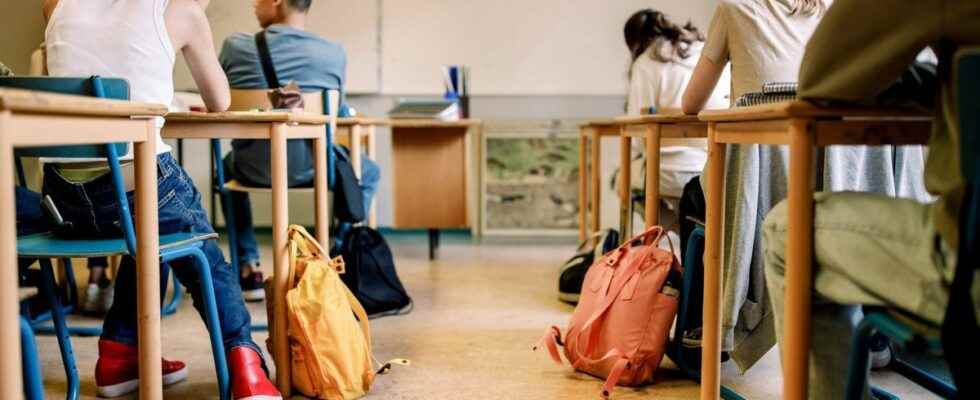Published on
Updated
Reading 2 mins.
Wednesday morning, a Spanish teacher, teacher at Saint-Thomas d’Aquin high school in Saint-Jean-de-Luz (64), was fatally stabbed by a student. How to deal with the witnesses of this violence? The answer of Dr Gaelle Abgrall, head of the Medical-Psychological Emergency Cell of Paris and the Ile de France area.
It is a terrible tragedy which shakes the whole town of Saint-Jean-de-Luz. On Wednesday February 22, a Spanish teacher died after being stabbed by a 16-year-old student.
Many students attended the scene
According to BFMTV, the incident took place around 10 a.m., in a classroom at the Saint-Thomas d’Aquin high school.
The perpetrator, a 16-year-old high school student in second grade, pulled a knife from his bag to stab his Spanish teacher.
In cardio-respiratory arrest, the 52-year-old teacher died shortly after.
For the students present in the classroom, it is a huge shock.
“There had never been a problem between him and the teacher in class.“, testifies Inès, one of the classmates of the murderer.
If the young witnesses of the scene had to be auditioned yesterday, they subsequently “was taken care of by a psychological unit“, said the Minister of National Education Pap Ndiaye.
Good in your body, good in your head!
What does this support consist of?
According to Gaelle Abgrall, head of the Medical-Psychological Emergency Unit in Paris and the Ile de France area, this medical-psychological care is primarily intended for students directly affected by the tragedy, but also for teachers and facility staff.
“Faced with this type of event, the Samu can propose the intervention of the medico-psychological emergency unit to the people involved, in conjunction with the rectorate, school doctors and psychologists possibly mobilized within national education. , emphasizes the expert, before specifying that “The number of collateral victims is much greater than one can imagine: the staff of the establishment, the friends and families of the students may also need help”.
Important detail: this medico-psychological care will be offered but not imposed. They are in no way compulsory. On the other hand, they are often very useful for the witnesses of the scene and/or the collateral victims.
“This early care consists in understanding the experience of the event and the associated emotions. The objective is to verbalize what happened, to offer this “emotional discharge” to the victims so as not to let the traumas and the associated symptoms settle over time.“, says Dr. Abgrall.
Communication work must also be carried out so that Luzians know that beyond this first space of emotional discharge, “care providers can again be contacted in order to benefit from appropriate care”.
